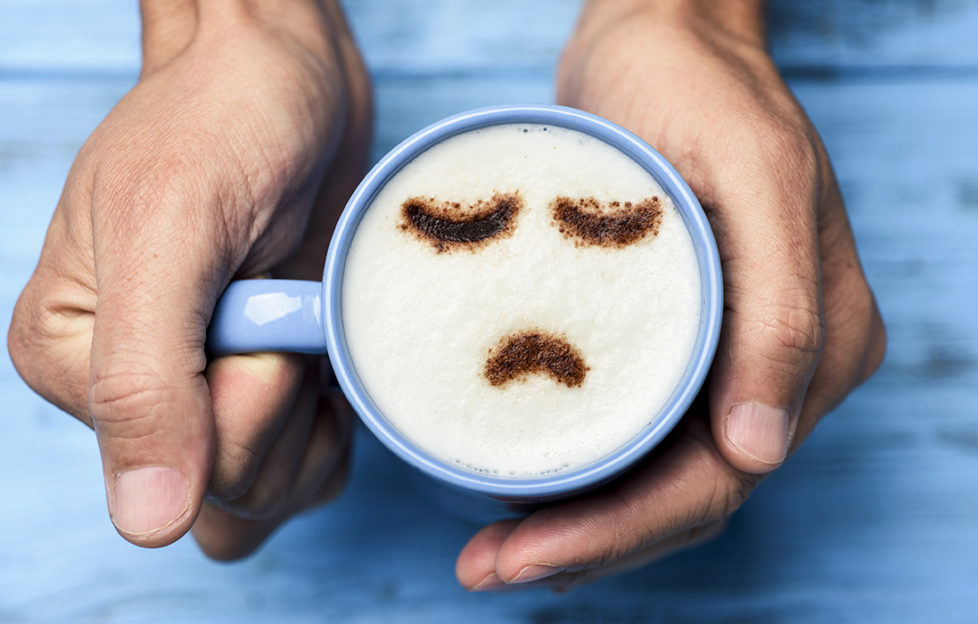Beat That “Blue Monday” Feeling

Blue Monday falls on January 20, 2025 this year, a time where mood can be particularly low. To combat this, we’ve 6 helpful tips from a mental health expert to beat the January Blues…
The start of the new year is generally a very exciting prospect for most, but the hype and buzz generally dies down once you settle back into your routine. For many people, the cold winter days, post-Christmas blues, the return to work and lack of money from splurging over the festive season all combined with Seasonal Affective Disorder (SAD) can lead to a significant dip in mood. It is thought that these feelings peak by the third Monday of the month, with this day being dubbed “Blue Monday”.
Without putting too much pressure on yourself, there are a few simple lifestyles changes you can implement to help battle the winter blues and improve your overall mood and energy levels.
6 Blue Monday tips:
1. Spend time outdoors this Blue Monday
This may not sound like the most appealing thing in the world, but going for a stroll outside, engaging in a snowball fight or helping the kids build a snowman can have a huge impact on your mood! Sunlight and fresh air can have amazing benefits for your health and wellbeing, boosting levels of vitamin D and serotonin and helping you to de-stress and unwind. Spending time in nature has been proven to reduce our stress levels, so even if you’re a city dweller, make some time to get outdoors and explore. Wrap up warm, plan for the winter weather and get out – you might be surprised by just how good you feel afterwards.
2. Try new things
Stimulate your creativity and imagination by trying something completely new. Why not go trampolining as a great source of exercise and good fun, learn a new instrument or take a life drawing class? When you tap into your creativity, studies show that you reduce your stress levels and experience fewer symptoms of depression. Being creative allows us to express and process our emotions, tap into our childhood sense of exploration and wonder and focus on the moment – the perfect antidote to the dull winter evenings.
3. Sort out your serotonin
You may have heard about serotonin before. It’s an important chemical neurotransmitter that is thought to have a strong effect on our overall mood, wellbeing and sleep patterns. As well as being found in the brain, serotonin can also be found in the gut. Research suggests that consumption of alcohol and coffee or a poor diet could disrupt the production of serotonin. Not only that, but lack of sunlight could also contribute to disruption in serotonin production, so it’s no wonder that winter nights could have left you feeling a little out of balance. Luckily, it’s possible to start putting your serotonin levels back on track. Cutting back on drinking and over-eating will definitely help, plus, adding more fresh vegetables, fruits, legumes and oily fish could contribute to regulating your digestive system. A regular exercise pattern will also help, as long as you are enjoying yourself! Pick something you will look forward to doing, and if you’re not as fit as you used to be, look out for “walking” sports like netball and football which encourage participants back to a sport they may have previously enjoyed.
4. Think Scandinavia
Don’t give in to the idea that a quiet night in has to be bland and boring. The Danish word “hygge” refers to moments in life that are particularly cosy, charming and cherished. Why not go out of your way to make your home extra cosy, so that you’re happy to come home and snuggle up every evening? Take a little time to freshen up the house, put out some soft rugs and cushions and create a perfect nest for yourself. Make yourself a nourishing warm drink (a turmeric latte also offers some great nutritional benefits) and cuddle in for the night. Invite a friend over for a really good chat and a catch up, or plan to watch your favourite movie. Perhaps you could find a new healthy baking recipe and cook yourself some healthy treats for the week ahead? Don’t get stuck in aimlessly channel hopping and wasting evenings wishing the hours away. Cherish your time at home and try to enjoy the cosy winter evenings you have left.
5. Light therapy
Some people who suffer with SAD find that light therapy can help improve their mood considerably. This involves sitting by a special lamp called a light box, usually for around 30 minutes to an hour each morning. These light boxes produce a very bright light, the intensity of the light is measured in lux – the higher the lux, the brighter the light. The light produced by the light box simulates the sunlight that’s missed during the darker winter months. The light helps to reduce the symptoms SAD by encouraging your brain to reduce the production of melatonin which makes you sleepy and increase the production of serotonin which improves your mood. For the light box to be effective, light from the box must enter your eyes indirectly. In order to be successful light therapy requires time and consistency.
6. And remember… seek help when needed this Blue Monday and beyond
Most cases of depression will be relatively mild, but if you’re experiencing severe symptoms, which are classified as those that seriously impact your daily life, there are also options for you. Talking therapies can be extremely beneficial and some doctors will also recommend anti-depressant medications in more severe cases. Visit your GP for advice.
Alternatively, if you would prefer to stay free of medication, ask you GP about Transcranial Magnetic Stimulation (TMS). TMS is a NICE approved mental health treatment that doesn’t require any invasive surgery or anaesthetic. It uses pulses of magnetic energy to stimulate areas of the brain known to be underactive in patients with depression.
Reach out and talk to your health care provider about your options. No one should suffer in silence.







